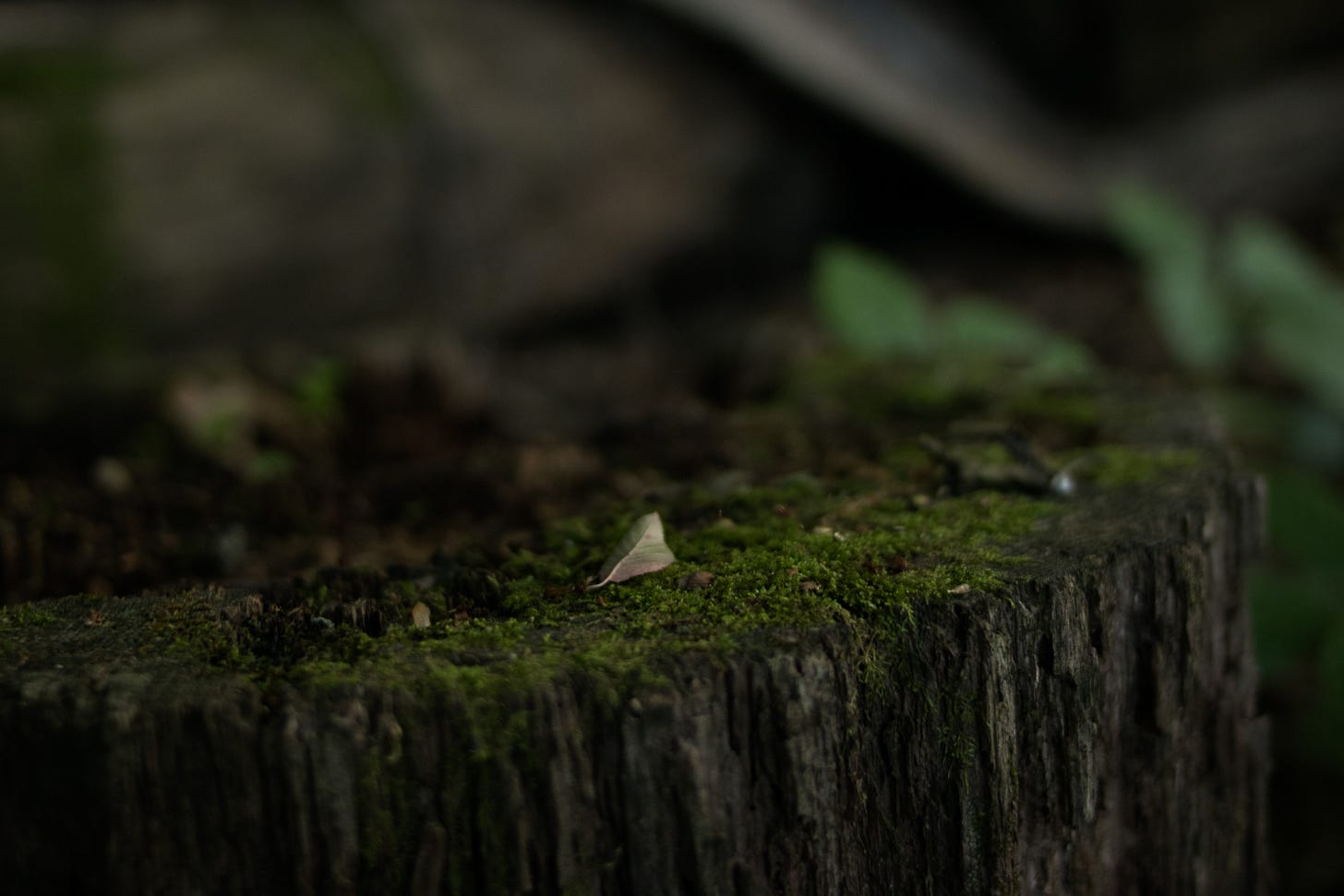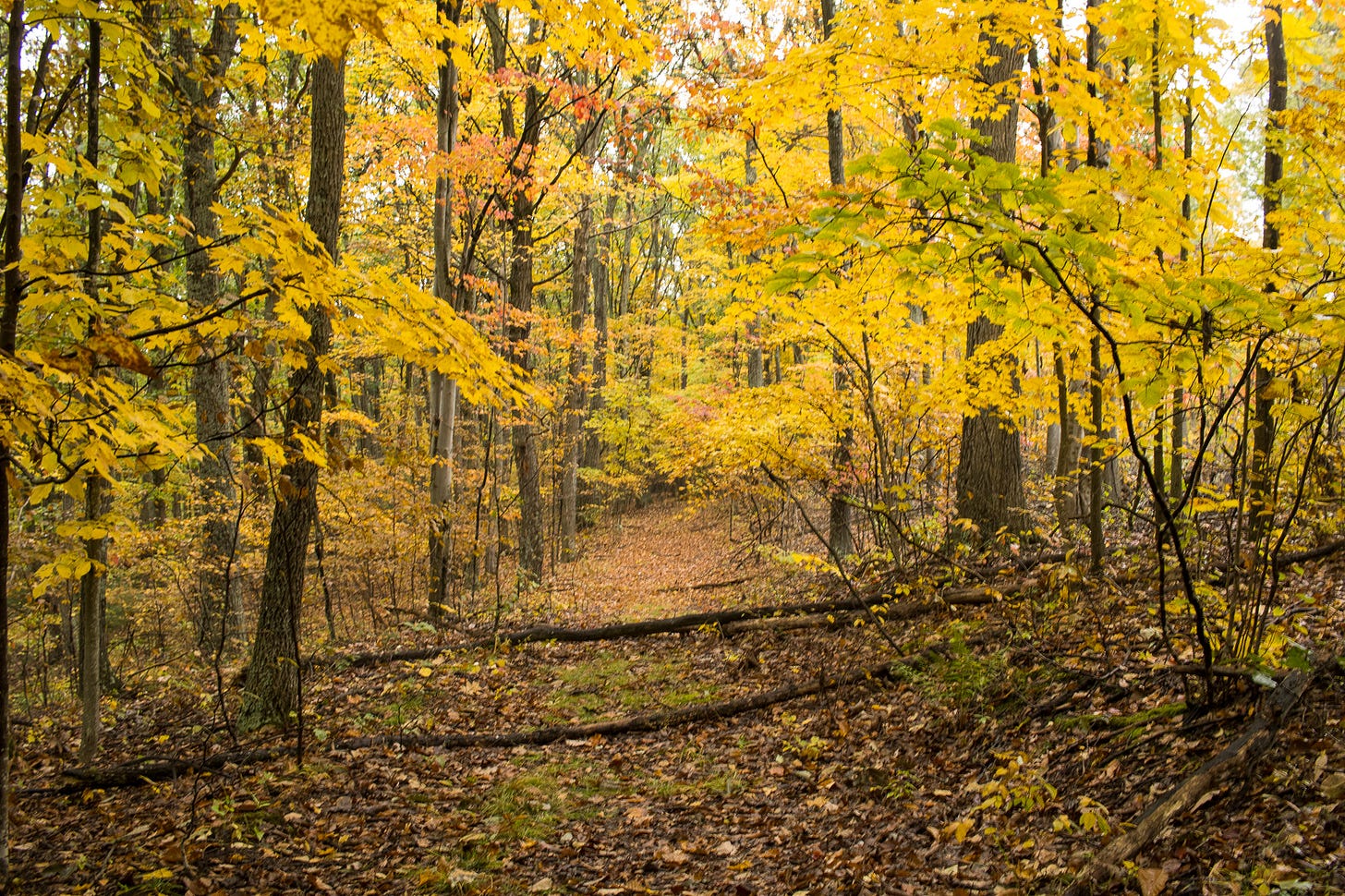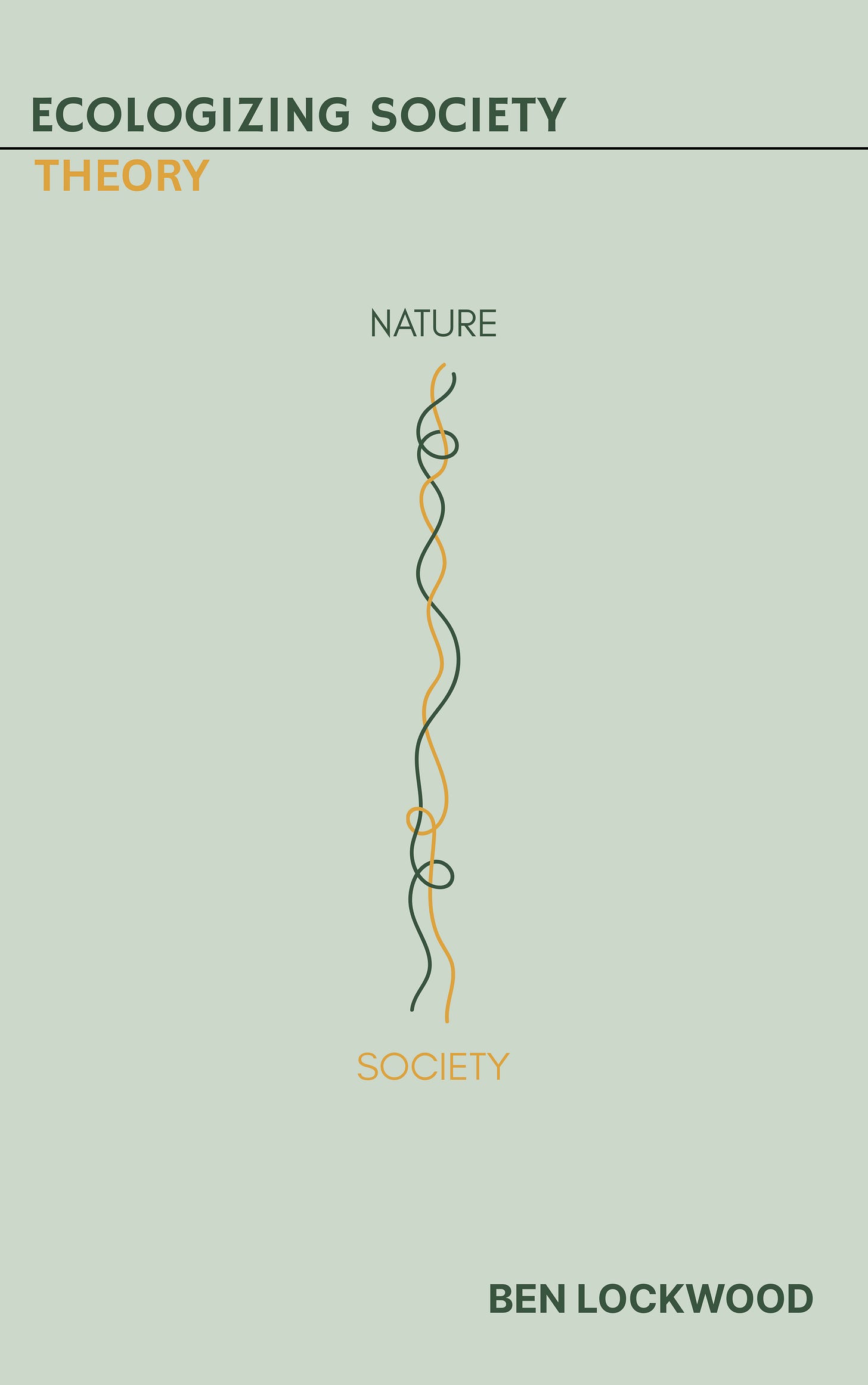The Eco-Update #17
Dispatches from the planet.
In This Issue
The Impacts of Timber Harvesting On Other Ecosystem Services
Marco Antonio Hernández Guevara died from the Florida heat
Ecologizing Society book cover reveal
Eco-Stories In The News
Eco-Fiction Review: The Map of Lost Places
Something You Can Do: Please donate to the GoFundMe for daughter of a man kidnapped by ICE
The Impacts of Timber Harvesting On Other Ecosystem Services
Last week a research project I've been leading was published in the Canadian Journal of Forest Research. For the least year, our lab here at Penn State has been looking into the impacts that different forest management activities have on forests' ability to deliver ecosystem services.
Our research took place in several forest stands in the northern Appalachian mountain region. We used two forest inventories that took place twenty years apart to examine changes in carbon storage, biodiversity, and timber production as a result of different harvest types and intensities.
In general, we found that higher intensity harvests and lower rotation periods reduced forest ecosystem capacity. Lower carbon storage and lower biodiversity levels were found in stands that experienced harvest intensities above 30% of their existing biomass, and with rotation harvest times of less than 15 years.
Our findings were very much in line with other research in the area that suggests higher intensity harvesting reduces ecosystem functioning. This is not to say that forests can't deliver multiple ecosystem services (including timber) simultaneously. In fact we found that harvesting between 30-60% of existing biomass at rotations longer than 15 years did allow many stands to recuperate lost carbon and experience biodiversity gains.
Not harvesting at all is the best way to preserve carbon stocks and biodiversity, but this doesn't mean that we can't manage forests sustainably. We certainly can, and this study supports that. The problem with sustainable management is not in the science of it, but in addressing the economic factors that contribute to harvest intensities that exceed what is sustainable.
Marco Antonio Hernández Guevara died from the Florida heat.

Too often the harmful impacts of climate change are reduced to numbers, statistics, and lines on charts. Last month, Marco Antonio Hernandez Guevara died at North Collier Hospital 8 days after collapsing in a south Florida field where he was a newly hired farmworker.
According to WUSF, Hernandez Guevara was 35 years old. He was from Mexico, and had traveled to the U.S. for work several times under the H2-A worker program. WINK reports that after receiving news of her husband's condition, Reyna Jimenez was able to travel to the states to be by his side and make arrangements after his passing.
However, both Jimenez and the Coalition of Immokalee Farmworkers are still working to get answers. While the official cause of death has not yet been released, Hernandez Guevara's conditions upon arrival at the hospital hint to a possible heat stroke.
The company which Hernandez Guevara was recently hired at, and working for at the time of his collapse, is JAM Farmers LLC. It's not clear what heat-related precautions were being taken at the worksite, and JAM Farmers did not wish to answer questions when asked by WUSF. The incident is now under investigation by OSHA, under Inspection Number 1846703.015
Hernandez Guevara's death comes as southern states are increasingly experiencing scorching summer heats and rapid increases in heat-related injuries. Texas and Florida alone account for nearly half of heat-related construction injuries, and Florida lawmakers are increasingly under pressure to address the rising death toll
Ecologizing Society book cover reveal!
I'm very excited to reveal that the first book from Brief Ecology Press, my upcoming Ecologizing Society: Theory, now has a cover design. I'm aiming for the book's release to be October 25th, BUT all paid subscribers to Brief Ecology will receive a free advanced digital copy next week. Subscribe now so you don't miss it.
Eco-Stories In The News
An ocean upwelling in the Gulf of Panama failed to occur for the first time in 40 years
Scientists link hundreds of severe heat waves to fossil fuel producers' pollution
The rise of ecoanxiety on the frontline of climate breakdown
Eco-fiction Review: The Map of Lost Places
When eco-fiction meets geo-fiction, some very interesting things happen. Apex Book Comany's The Map of Lost Places mixes themes of place and space in with stories about slavery, capitalism, racism, misogyny and many of the other ugly parts of society. Oh and there's plenty of weird, surreal, and cosmically horrific stuff going on in these places too.
Two pieces in particular stuck with me. The first was Maurice Broaddus's "The (Lost) Tribe of Ishmael", taking place in Kentucky and southern Indiana. The story also stretches across time, following different generations of a Black family working the Underground Railroad, and the white supremacist family that wants them gone. Things come to a head with some great cosmic horror that turns the well-known racism of Lovecraft around on itself.
The second piece that really grabbed me was Brian Keenes story "Notes Towards a History of LeHon's Hollow". Told using an epistolary and found document framing, the narrative here pieces together the history of a mysterious patch of forest in Central Pennsylvania.
Full disclosure-part of why I liked these two so much could be because I'm originally from Indiana and now I'm living in central Pennsylvania. But it's also simply that they're great stories. In fact there's not a bad story in this collection. Excellent pieces by familiar short fiction writers like Ai Jiang, Rebecca E. Treasure, and Vivian Chou also fill the pages.
Apex's The Map of Lost Places is a collection of specific, place-based fiction that nonetheless challenges our notions of spatial and temporal fixity. It's both fun and thought-provoking, and if you like short, weird fiction then I highly recommend this one.
Something You Can Do: Please donate to the GoFundMe for daughter of a man kidnapped by ICE
From Rosa Lobo’s GoFundMe:
**Gabriel Lobo was put into an unmarked van and turned into ICE on September 4th, 2025, while working outside.** Knowing that he was working here without a license, he had informed his boss of his fears to continue to travel to DC. However, his boss insisted that he come to the job site if he wanted to remain employed. **My father is a Salvadoran immigrant who originally came to this country as a war refugee in the 1980s.** He has been working since he was a teenager to provide for himself, his parents, and his children. He is a law-abiding man, an active member at his church, and a source of pride and joy in his community.
As things stand in El Salvador, he will be imprisoned under the state of exception without a trial or any pending charges in either country. Please, donate what you can to assist my family with legal costs both in the States and abroad.







Climate and labor issues are intwined in many overlapping points. There can not be a renaissance of organised labor without facing the climate crisis, and there can be no mitigation of the climate crisis without workers stepping up on the job. The exploitation of people and planet are two sides of the same coin.
Thank you for this post. I also wonder what the impact of harvesting is on different habitats. It must be very complex and species dependent.